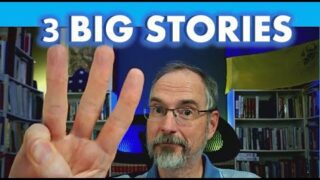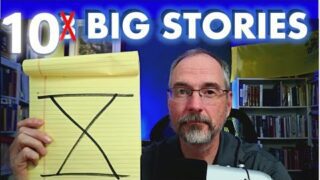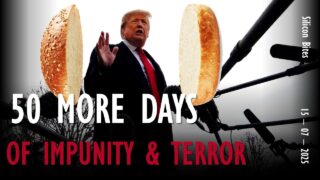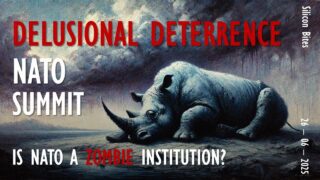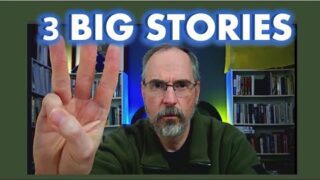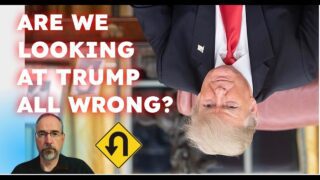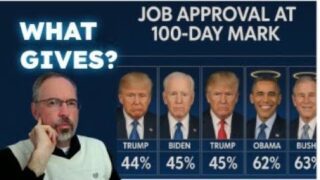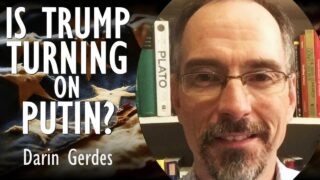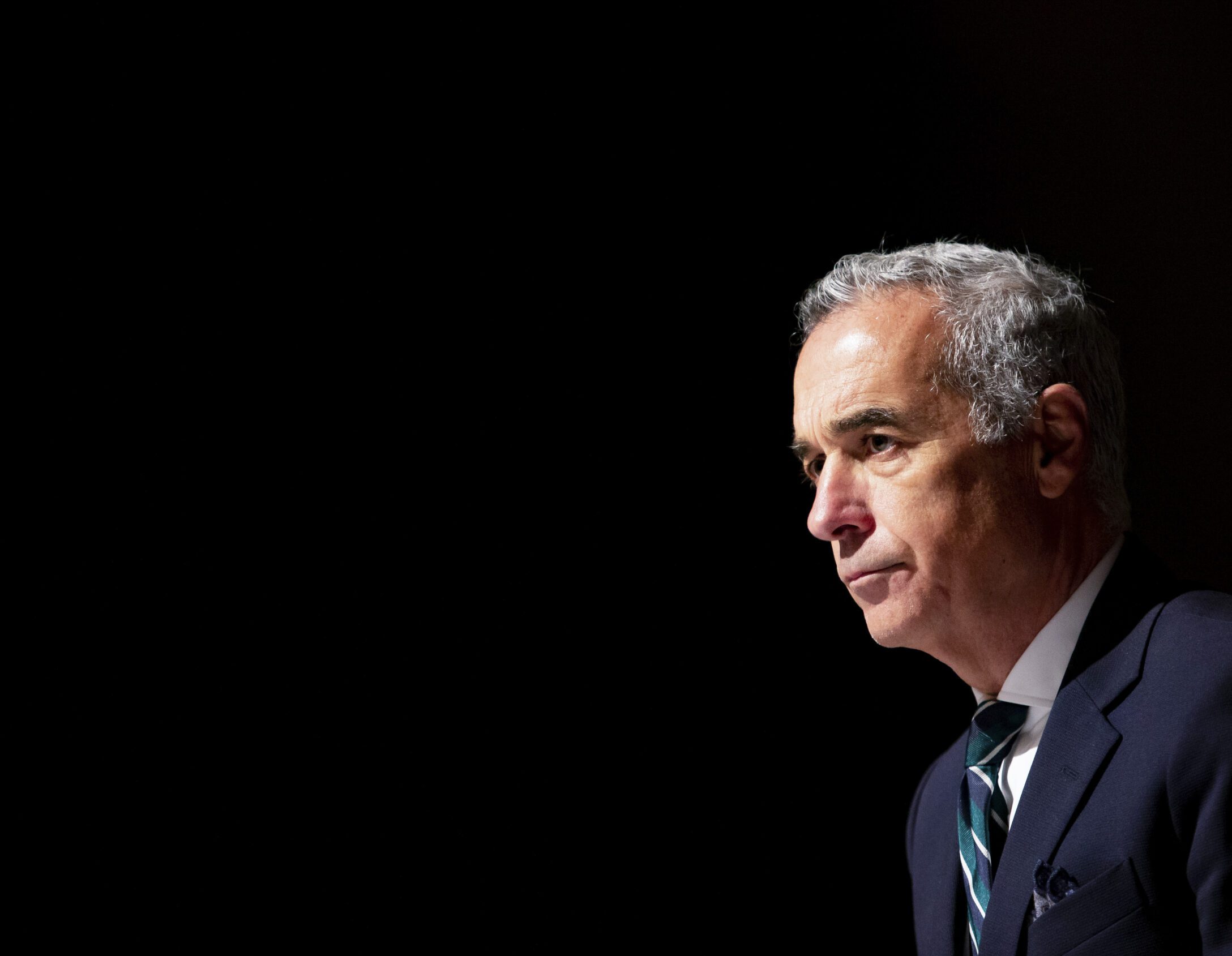
“Ignore the electoral noise: Georgescu’s TikTok triumph signals nothing about Ukraine,” says Romanian ex-diplomat
He’s got the looks and a fine TikTok handle, too.
The first round of presidential elections in Romania left many flabbergasted. Anti-NATO, anti-Ukraine, ultranationalist Călin Georgescu, against all the polls, ended up in first place (22.94%), beating political heavyweights like Prime Minister Marcel Ciolacu (19.15%), the pre-ballot favorite, and far-right George Simion (13.86%).
The 62-year-old former UN consultant, who’ll face another electoral dark horse, pro-Western Elena Lasconi (19.18%) in the runoff, has called NATO’s missile defense system in Romania “a shame of diplomacy” and praised Putin as “a man who loves his country.”
The stakes are high for Ukraine. Romania, sharing a 400-mile border, currently provides critical support: a NATO base, Patriot air defense systems, and essential grain transit routes. Yet Georgescu advocates for “Russian wisdom” over independent diplomacy while avoiding explicit support for Russia’s invasion.
Though largely ceremonial, Romania’s presidency influences foreign policy—making this shift particularly concerning for Western allies.
To understand what’s happening in one of Ukraine’s closest allies, we spoke to Eusebiu Slavitescu, a former European diplomat who served as a counselor to the State Secretary within the Romanian Ministry of Foreign Affairs, who, like many, is recovering from a political shock.
Taming the TikTok algorithms
EP: Putin-friendly, far-right, and independent. That’s what the winner of the first round of the presidential election in Romania, Călin Georgescu, is. How come no one saw that coming?
ES: Well, you certainly got that right.
This morning, many people from my circle were googling his name and asking themselves, “Who the hell is this guy?”
It’s an absolute nightmare. Just last week, he polled at 6%, right? So how come he won? The reasons are mixed, but I’d say it was more of a victory of the TikTok algorithms than anything else. The man didn’t campaign physically, attended only a few TV shows, and didn’t even use Facebook.
Apparently, it was enough.
On a broader response to your question, the current President, Klaus Iohannis, has been around for 10 years and, elegantly put, absent throughout them.
He did everything right in foreign policy, security, and defense. Think of the Patriot system that was transferred to Ukraine.
However, domestically, he was silent. People feel that traditional parties like the Social Democrats and the Liberals also don’t care. They didn’t even try to talk to people or meet them in rural or urban areas, focusing on their enormous party machines instead. But for the first time since Communism fell, we’ve seen that the traditional media is no longer on the top. TikTok is.
EP: Still, what could explain this rate of success? After all, the older generation likely doesn’t use TikTok as much.
ES: Indeed, I’d imagine that his key voters are young people. But again, I live in a bubble; we all do.
I did speak to a friend who told me last week that he’d be voting for him. I asked him why, and he said that Georgescu was a professor, had good looks, and was confident. He’s well-spoken, though lacking in substance.
Apparently, for more than two million Romanians, this was enough because when I asked my friend if he was aware that Georgescu was parroting the Kremlin propaganda and was anti-EU, anti-NATO, and anti-Ukraine, he said he had no idea.
Funnily, this friend of mine only checks the news once or twice yearly, just for presidential campaigns. And he was convinced that Georgescu would win. I was like, yeah, yeah. Yet, here we are.
The elderly voted for him, too, which is even more fascinating, considering they were watching all those TikToks from rural areas.
Also, the Orthodox church plays a huge role in Romania’s politics. It shouldn’t, but it does—many priests in churches and monasteries sort of pushed for his campaign because Georgescu is very religious. I mean, just several days ago, he claimed on TV that he was God-chosen. This is the level of his madness.
EP: From what I hear, I can assume that the priests also use TikTok. They could record short videos of their own.
ES: TikTok explains some of it but not all.
I’m guessing the Romanian society feels disappointed that everybody abandoned us, right?
This guy managed to strike a chord with them, whether in a small village on the shores of the Black Sea or at the Ukraine border in the North.
Ironically, many were worried because there was a chance that another far-right nationalist, George Simion, would get into the second round.
Well, let me tell you this: Simion is a walk in the park compared to Georgescu. Also, the whole thing is very dangerous because, combined,the extreme far-right got somewhere between 35% and 37% last night.
A clear choice between the Soviet Union and the EU
EP: What about Elena Lasconi, the runner-up? She also turned out to be a dark horse.
ES: Indeed, since 1989, the Social Democrats would always make it to the second round.
This time, none of the major parties got into the second round, which tells us that the traditional political party systems in Romania completely collapsed yesterday as, like Georgescu, Lasconi doesn’t represent a big political party either.
The two came out of nowhere. She’s the mayor of a relatively small village in Romania and has done an outstanding job in that village using European funds.
Just before the political presidential campaign, she became the candidate for this relatively new political party, the Save Romania Union.
We just hope that in the second round, every political faction will come together behind this woman because Georgescu is a transparent fascist. The people he is inspired by are fully fascist, and you will see the word fascist coming around a lot in the next two weeks.
EP: Lasconi is more pro-Ukraine, right?
ES: We had 14 candidates, and she’s the most pro-Ukraine, the most pro-EU, pro-NATO pro-everything.
EP: You’ve partially answered this question, but let’s clarify. So, the pre-election polling got everything dramatically wrong. Why do you think this keeps happening? Is there something wrong with the polling technique? And second, since we cannot rely on polling anymore, what’s your hunch in the second round: Lasconi or “the chosen one?”
ES: Let’s start with Lasconi. I think, and I hope because nobody actually knows, that she wins.
I say hope because, given what happened, it would be very arrogant of me to say that he’s not going to win.
I can say that the head of the Liberal Party and the head of the Social Democratic Party both resigned today. This is a good sign. We need change and reform, and we need to put other people in charge to understand what’s happening and what’ll happen.
I expect that Lasconi will bring absolutely everybody to the table and try to sign some sort of agreement because this is no longer about personalities.
It is a clear choice between the Soviet Union and the EU. Because if you listen to this guy, he won’t shut up about how great life was back in the day.
EP: During Nicolae Ceauşescu? [Romania’s communist dictator executed in 1989] Probably, it also shows who his role model is.
ES: Yes, but some of his models are even more hardcore fascist.
To answer your polling question, in Romania, these polls have been used, especially during elections, as a tool for political parties to manipulate.
So, most of them are ordered by the same political parties, and we have six or seven companies that carry them out. If you check which party requested one, you will see that it is doing relatively well in that poll.
I mean, we are not really serious about polling around here. Otherwise, how do you explain that one week ago, Georgescu polled at 6% and suddenly ended up at 22%?
And it’s not the first time it has happened. In June, Bucharest had a mayoral election. According to the polls, the politician who won it 49% ahead of his competitors was only within 1%.
It’s becoming a tradition, if you will.
Also, we keep hearing about the silent majority. That was very true in the US, especially in 2016. You don’t tell anybody you’re going to vote for Trump, although you’re just fed up with everything.
Trump likely approved the Ukrainian long-range strikes into Russia
EP: Moving to the next question: Romania is one of Ukraine’s key allies. How does Bucharest see the war’s end, and what’s off the table? Especially given Trump’s peace push.
ES: Romania is very pro-Ukraine. When Russia launched an illegal and brutal war, people rushed to the border, brought food, and waited to help. There were more people at the border than Ukrainian refugees. It was a very touching scene and illustrative of how we feel.
We also gave you the Patriot system, which is quite a big deal.
So, I don’t think those who voted for Georgescu did so because we’re anti-Ukraine. It’s really not so.
Regarding Potential concessions as part of the peace talks, it is up to the Ukrainian people to decide what they consider acceptable. We will stand by your decisions.
Trump is unpredictable, but it’s also part of his strategy. For Ukraine, it’s an opportunity. I, for one, adhere to the peace through strength principle andjust look at the long-range strikes that were likely given the green light by Trump.
EP: By Trump?
ES: Of course. Multiple sources familiar with the subject have indicated that he approved of them.
Plus, it’s highly unlikely that the outgoing Biden administration would do something like that without consulting Trump. And it’s a very convenient position for him: he can always say that look, Joe did it, not I, and thus remain faultless.
So, yes, it’s definitely an opportunity for Ukraine.
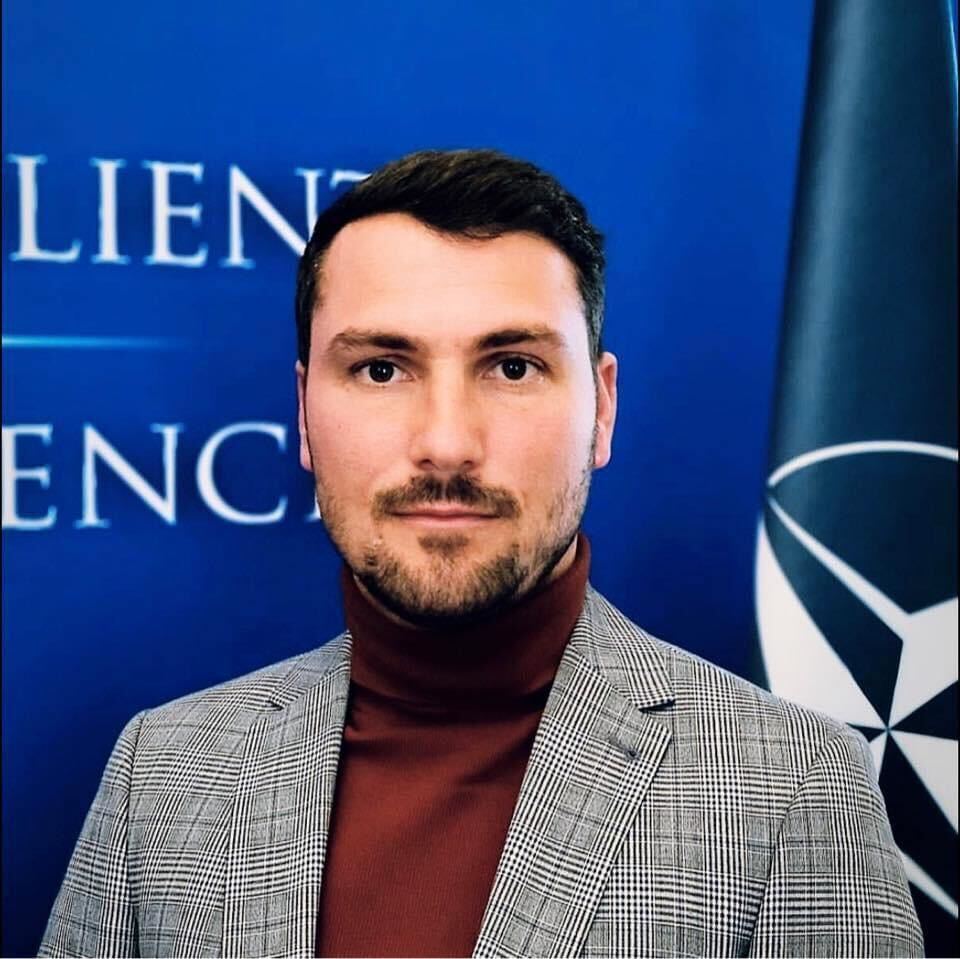
The December 8 runoff presents Romanians with two starkly different choices. In one corner stands Călin Georgescu, the surprise anti-NATO frontrunner. In the other, Elena Lasconi, who made her name as a war correspondent before becoming mayor of small-town Câmpulung, where she’s earned praise for transparent governance and green initiatives.
Lasconi’s stance is clear: “If Ukraine gives up territory, Putin won’t stop.” Yet her progressive views might be a hard sell to rural Social Democrat voters. With first-round turnout at just 52.5%, both camps see untapped voters as key. Georgescu is counting on his shock victory to bring out more supporters, while his opponents hope to rally those alarmed by his anti-Western stance.
The stakes reach beyond the presidency. Analysts worry Georgescu’s surge could shake up the December 1 parliamentary elections, making it harder to form a stable government at a critical time for Romania’s role in supporting Ukraine.
Read more:



